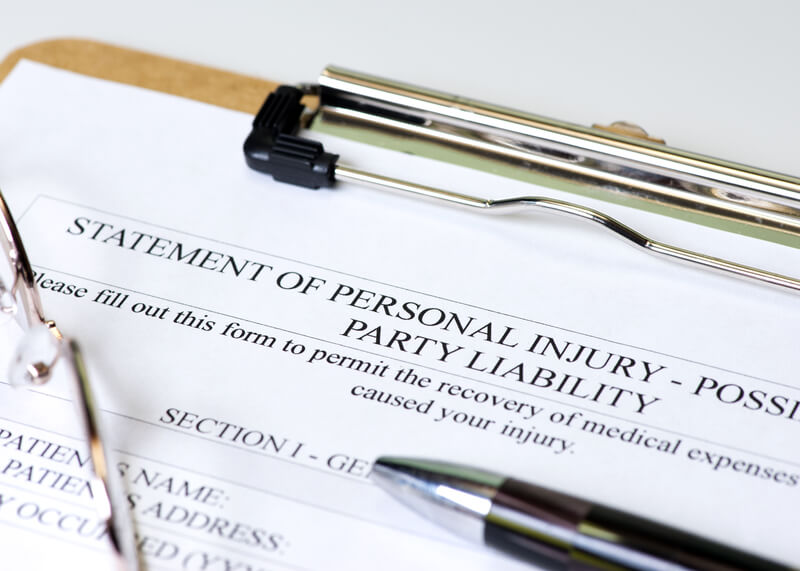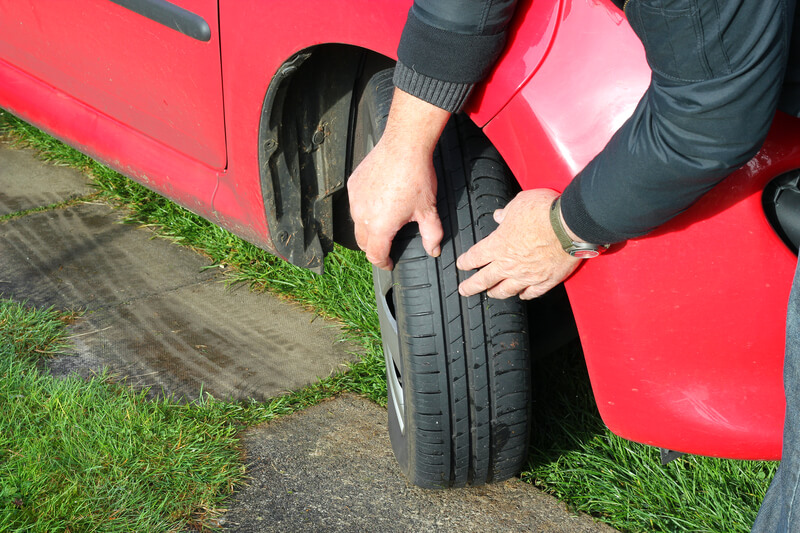Georgia doesn’t have the best road reputation—with looming logging trucks, distracted drivers and seemingly endless construction (we’re looking at you, 285/400 corridor project), driving in the state can sometimes feel like running an asphalt gauntlet.
That reputation is borne out by the numbers: Insurify, an insurance comparison site, analyzed data from 4.6 million car insurance applications, comparing drivers with an at-fault accident on record to the total driving population. In Georgia, 10.6 percent of drivers had an at-fault accident on record—20 percent higher than the national average.
Some of those at-fault accidents are fender benders: low-speed crashes that usually result in only minor auto damage. Drivers often try to shake off such accidents, assuming that if their vehicles are OK, they should be, too. But fender benders can still cause serious injuries, ones that require medical treatment, physical therapy or even surgery.
After an Atlanta fender bender, what should you do? And is it possible to receive compensation for injuries when the crash itself doesn’t result in major auto damage?
Do fender benders count as accidents?
First off, in a city with so many serious car crashes, is a fender bender really an accident? The answer is simple: Yes, absolutely. There’s no minimum for what counts as a crash—not in terms of medical attention needed or property damage. Your insurance company will still expect you to call the police and report the crash.
What to do after a fender bender
Fender benders are car crashes, and after any car crash, you should:
- Call 911 and wait for first responders.
- Exchange contact information, including phone numbers, insurance information and driver’s license details with the other motorist and document the scene.
- Ensure that the police create an accident report and make sure you understand how you’ll receive a copy of the police report.
- Accept medical attention if you need it.
- Notify your auto insurance company right away to start the insurance claim and expedite the claim process.
All too often, people check out their cars after an auto accident but fail to check their own wellbeing. Sometimes, drivers may even agree not to call the police because their vehicles are undamaged. While a fender bender absolutely counts a car crash, it won’t count as anything from a personal injury or insurance standpoint if there’s no record of it happening. And if you don’t call the police and create an accident report, the other driver could easily blame you for later, unrelated damage.
While some car crash injuries are immediately serious, others are masked by the initial rush of adrenalin. It’s only after some time has passed that pain worsens or gets harder to push through.
You never want to push through or ignore an injury, however. From a medical perspective, it can delay your diagnosis and care. From a claims perspective, it creates the opportunity for insurance adjusters to question your story, asking what else may have happened between the wreck and your diagnosis.
The type of medical attention you receive is also important. Many people accept an emergency room evaluation after a crash, get an OK to go, and find themselves still in pain days later. If you’re hurting, schedule a follow-up with a specialist to find out why you’re still in pain. You may need more advanced imaging to correctly diagnose your problem, especially if you’re suffering from a soft tissue injury or herniated disc.
Pregnant people involved in accidents also require specialized care, no matter how minor the crash. Head to the emergency room if you experience any leakage, bleeding or pelvic pain, or if you lost consciousness. Even if you don’t have symptoms, you’ll want to call your obstetrician to talk over what happened and determine if you need emergency care or an office visit.
Common fender bender injuries can be serious
Some of the most common injuries for fender bender accidents include:
- Contusions
- Cuts
- Disc protrusions
- Head injuries
- Headaches or migraines
- Herniated discs
- Lower back pain
- Neck injuries
- Nerve damage
- Post-concussion syndrome
- Scrapes
- Shoulder injuries
- Sprains
- Strains
- TMJ disorder
- Traumatic brain injuries/concussions
- Whiplash
Whiplash is often considered a personal injury cliché, but soft tissue injuries are painful, can take weeks or months to heal and may require extensive physical therapy. Insurance companies try to play on negative perceptions of whiplash, especially when the car body damage isn’t serious. They may offer unfair settlements or even call your injury into question.
Starting off right with a thorough medical evaluation will help diagnose injuries early and create a record of treatment that’s harder for insurance companies to find issue with.
What are the causes of a fender bender?
As the name suggests, fender benders are often associated with low-speed rear-end crashes resulting in bumper damage. They’re common in congested areas with stop-and-go traffic—something Atlanta has in spades.
While a high-speed rear-end accident can be devastating—for example, when a vehicle fails to stop for a red light and slams into a stopped car—low-speed crashes often happen when the driver is distracted, following too closely or does not account for icy or wet roads. Newer collision warning safety technology can help reduce accidents by sending out a sensory notification like a beep or buzz if you’re getting too close to the vehicle in front of you.
To help avoid fender benders, follow these road rules and safety practices:
- Follow the speed limit.
- Come to a complete stop at stop signs and red lights, and don’t assume others will do the same.
- Never drive distracted.
- Never drive under the influence.
- Allow aggressive drivers to pass and move on.
- Signal when changing lanes, merging or turning, and check your blind spots.
- Use extra caution when driving in parking lots.
- Choose a car with advanced safety features like backup cameras, forward collision warning, lane departure warning and blind spot warning.
More serious accidents are on the rise
While fender benders are common, serious accidents are unfortunately on the rise in Georgia and throughout the country. Georgia had the fourth-highest number of fatalities nationwide in 2020, according to the Georgia Department of Public Health.
Thanks to advanced safety systems, cars are getting safer and seat belt use is still high, but drivers are hitting the roads more recklessly and at higher speeds since the pandemic began. According to the National Safety Council, speed was a factor in 29 percent of nationwide traffic fatalities in 2021, a steady climb from 2019, when speeding-related deaths had hit a record low.
Should I get a personal injury lawyer for a minor car accident?
Minor car body damage can be expensive, but when an injury is involved, the cost of a fender bender can quickly skyrocket through unexpected medical expenses. An experienced Atlanta car crash attorney can help you file a claim after a car accident, even for accidents that happen at low speeds, on good road conditions and involve little vehicle damage.
Atlanta fender bender accident attorneys
If you’ve been hurt in a fender bender, you need a car accident attorney who understands the challenges of minor car crash injuries, like whiplash, lower back injuries and herniated discs. At Litner + Deganian, we understand that car body damage isn’t indicative of the injuries that occurred in the crash, and we understand how treatment often progresses for common car crash injuries. Give us a call to talk through your options in a free consultation.












